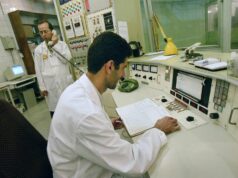Violent clash in Khyber Pakhtunkhwa leaves 14 injured

Furthermore, extremist factions using social media platforms during sensitive religious periods of Muharram propagated hate speech and provoked violence. As many as 14 people sustained injuries in a clash that broke out between two factions during the Muharram procession in Pakistan’s Khyber Pakhtunkhwa province, Dawn reported.
The incident occurred in Shah Mohammad village in the Haripur district. The clash reportedly erupted over barricading a road within the city. Some individuals allegedly threw stones and chairs at the procession participants.
As many as 14 people, including two policemen and a journalist, sustained injuries in the incident.
According to reports, police used tear gas to disperse the members of both factions. The injured individuals were transported to a trauma centre and local hospital for treatment, where one of them was reported to be in critical condition due to a head injury.
Many people on social media, have alleged that the attack during Muharram procession was carried out by banned extremist group Sipah-e-Sahaba. This underscores the need for rigorous monitoring and control measures to uphold peace and stability in the country.
The security measures have been beefed up across various regions of Pakistan, as reported by Pakistani media.
According to reports, 502 locations in Punjab have been designated as sensitive areas, prompting the deployment of army and Rangers personnel.
The Punjab government has enforced Section 144 throughout the province for Muharram to maintain public peace, sectarian unity, and overall law and order. Cities like Karachi have also taken extensive precautions for Muharram.
Muharram holds deep significance for Shia Muslims, yet Pakistan has repeatedly experienced sectarian violence between Sunni and Shia communities during this period.
This division has historically led to targeted attacks during Muharram events, which extremist groups exploit to spread fear and disorder. Tragic incidents, such as the suicide bombing at a Shia mosque in Quetta on January 19, 2007, during Muharram prayers, resulted in at least 15 deaths and numerous injuries, highlighting the seriousness of these threats.
Similarly, a suicide bombing targeting a Muharram procession in Karachi on December 28, 2009, claimed the lives of at least 43 people and injured over 100.
Another bomb attack during a Muharram procession in Rawalpindi on November 21, 2012, resulted in the deaths of at least 23 people and injured over 60.
The Pakistani government’s challenges in effectively addressing these threats have worsened the situation, leading to deadly incidents targeting Shia gatherings.



